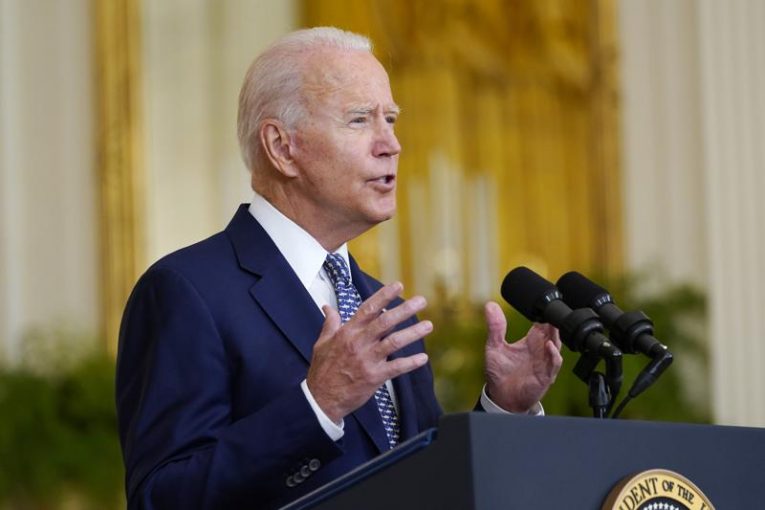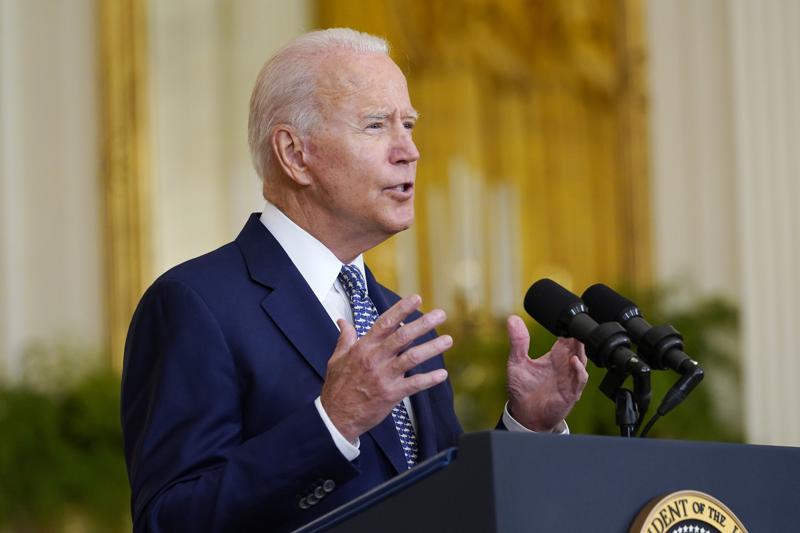

Reform-minded district attorneys are getting elected across the USA. Now’s the time for Biden to set national guidance for progressive prosecution.
by Keith Ellison, Miriam Aroni Krinsky and Joyce White Vance
Millions of people have taken to the streets demanding an end to racial injustice and mass incarceration. Now it’s clear that they’re also taking to the polls. Just last month, a reform-minded candidate for district attorney who promised to stop prosecuting many low-level crimes in Manhattan took the lead in the primaries. New York City isn’t alone. Voters across the country are giving the nod to prosecutors who are pushing for an end to mass incarceration over those with a more tough-on-crime agenda.
Despite these long overdue changes, some have been pushing back on reform by promoting an unfortunate and inaccurate narrative. As violent crime rates rose in some cities across the country, police union leaders and tough-on-crime officials, including then-U.S. Attorney General William Barr, falsely proclaimed it the fault of criminal-justice reform and laid blame at the feet of so-called progressive prosecutors. This misguided and partisan finger-pointing ignored the far more pertinent fact that the COVID-19 pandemic shut down the institutions responsible for promoting public safety and plunged countless Americans into desperation.
In turn, violent crime rose at similar rates in communities with and without reform prosecutors in charge.
Thankfully, voters saw through those false claims, and reform-minded prosecutors across the country won decisive victories, offering a powerful lesson: Communities are rejecting fear-based narratives for evidence-based solutions and flocking to the polls with a hunger for systemic transformation.
It’s time for the president and national leaders to heed this call and invest in prosecutorial innovation that can make the criminal legal system more fair and just for all communities and leave America safer.
The Biden administration must build on this community-based movement and follow through on a commitment the president made to form a Task Force on 21st Century Prosecution, modeled on President Barack Obama’s Task Force on 21st Century Policing.
Reform-minded prosecutors now lead offices in large cities and rural counties in every region of the country, collectively representing a significant portion of Americans.
This task force and its work would provide the most significant way for the White House to impact criminal justice reform. Local prosecutions drive our world-leading incarceration rate and are responsible for nearly 85% of the millions who are locked up in America.
By providing the nation’s 2,400 local and state prosecutors a deeper understanding of the harm of mass incarceration and data-based mechanisms for change, the administration could push our criminal legal system to create more just policies and address its inherent systemic inequities.
Dozens of national criminal-justice leaders (including the three of us) have called out “our nation’s decades of ‘tough on crime’ practices” as “anathema to justice.” Those practices have also been anathema to safety.
We need promising innovations in prosecution. We need to catalyze new ideas from experts and to incentivize reforms for local and state prosecutors to emulate. A task force would help ensure that new prosecutors hoping to correct inequalities and injustices do not have to reinvent the wheel.
Further, a task force would promote efficiencies for precious federal resources, helping to ensure the billions of dollars our federal government funnels into local justice systems every year are put toward strategies that actually work.
Voters from communities most harmed by mass incarceration understand that short-term, purely punitive approaches to public safety – like locking up people for decades who commit crimes – may actually increase crime in the long term. They know that by disproportionately incarcerating Black and brown, mostly poor, people every year, we are also traumatizing children who are separated from their parents or loved ones.
The practice traps families in poverty and sets incarcerated people up for failure once they’re released – none of which promotes public safety. And they’ve seen that this ineffective system wastes huge sums of money that could instead be invested in education, jobs, health care and housing that stop crime in the first place.
Manhattan voters had a crowded field of eight contenders vying to be the Democratic nominee for district attorney. They chose a reformer who, in addition to promising an end prosecution for low-level offenses, promised to end cash bail and invest in restorative justice programs.
Shortly before that, many feared that Philadelphia District Attorney Larry Krasner, whose bold efforts to end mass incarceration have attracted endless hostility from the local police union, would lose his reelection. But when the results came in, Krasner had more than twice as many votes as his opponent.
And last year, reform-minded prosecutors in Chicago and elsewhere resoundingly won reelection, despite fierce opposition from police unions.
With each election cycle, voters seem to be paying more attention to prosecutors’ races and recognizing the power of that office to bring about a new vision of justice. And the trends suggest that this movement will only continue to grow. Biden can help chart the future of prosecution – and the entire criminal legal system – by investing now, creating a task force that would bring high-level leadership and focus to prosecution and spreading innovation to every corner of the country.
Keith Ellison is the attorney general of Minnesota. Miriam Aroni Krinsky is the executive director of Fair and Just Prosecution. Joyce White Vance is the former U.S. attorney in Alabama and a professor at the University of Alabama School of Law. They are among the 107 prosecutors and law enforcement leaders who signed a letter to the president urging him to establish a Task Force on 21st Century Prosecution.
Article originally appeared in the USA Today
